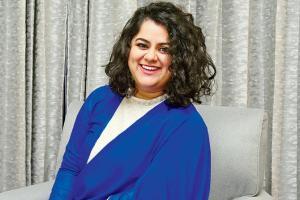According to a Reuters report, since 2010, 24 Muslims have been killed across India in cow-related violence

Nazia Erum
New Delhi
Kickstarted a conversation on the marginalisation of Muslim mothers in India
Delhi in 2014 was very different from the year before. The wounds of the horrifying Nirbhaya rape case still fresh, the capital began to seethe with a new separatist sentiment after the BJP came to power, or, at least that's what many concerned citizens felt.
ADVERTISEMENT
According to a Reuters report, since 2010, 24 Muslims have been killed across India in cow-related violence. It reached a feverish pitch post 2014, when there was a clarion call for a ban on beef. It was in this environment that Nazia Erum was experiencing the new joys of motherhood, albeit with trepidation. "It started with a niggling fear, which just refused to go, when I had my baby. The fear just crawled inside me, and felt like it was under my skin," recalls Erum, who is the youngest Indian to represent south-east Asia at the Global Fund Board - an international organisation that aims to leverage additional resources to end AIDS, tuberculosis and malaria.
Having grown up in the "inclusive and secular" state of Assam, it was in Delhi, where she went to pursue higher studies, where her identity as a Muslim became
more pronounced. "Post 9/11, the media narratives built around this identity were painful," she says. "We were getting labelled and the stereotypes were unflattering. But, once the lynchings started, I started feeling very uneasy."
Anxious about the future of her daughter, Erum started talking to Muslim mothers like her, in an attempt to write a "positive memoir of a modern mother raising a child in an otherwise tumultuous, political environment". She wasn't ready for the stories she was to hear. As she dug deep, connecting with over 145 families across 12 cities, a new narrative emerged, which went on to become the foundation of the hugely successful book, Mothering A Muslim (Juggernaut) that released earlier this year.
Highlighting the stark polarisation within schools in India, the book, in a first, addressed the elephant in the room. From Muslim kids being called "Paki" and "terrorist," to facing ghettoisation, or having to deal with unfriendly bullies for classmates, Erum's book discusses every kind of Islamophobic narrative unfolding in schools.
In hindsight, she says, she wanted to reach out to "each and every mother" - not just Muslims - in order to nip the crisis in the bud. She can't say, if she has been completely successful. "I have been getting mails daily. But after the book, I expected every single Muslim mother to come out and speak up.
That didn't happen. It's not easy for mums to say, 'Yes, I am Muslim and this happened to me [or my kid].' I think everybody is listening and agreeing, but nobody wants to talk about Islamaphobia being internalised in schools yet."
Her biggest compliment, however, came recently at a student conclave - Padma Shri JK Kate Memorial Knowledge Conclave - in which several top schools from the country participated. As part of the event, students were asked to review her book, and have a conversation with the author. "One of the kids said, 'I hate to admit it, but I am the bully in that book. I'm ashamed, I did that.'" That's a good start, says Erum.
Catch up on all the latest Mumbai news, crime news, current affairs, and also a complete guide on Mumbai from food to things to do and events across the city here. Also download the new mid-day Android and iOS apps to get latest updates
 Subscribe today by clicking the link and stay updated with the latest news!" Click here!
Subscribe today by clicking the link and stay updated with the latest news!" Click here!






